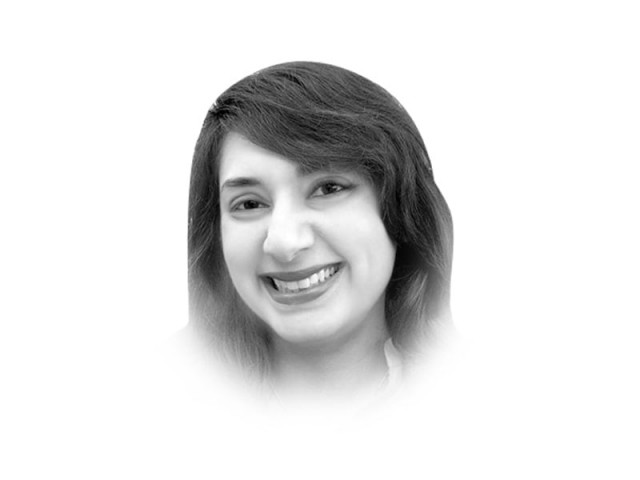In Pakistan, ‘liberal’ is a dirty word
The liberal concept of protecting liberty & individual rights was a major factor in the creation of Pakistan.

In Pakistan, ‘liberal’ is a dirty word
First of all, Pakistanis think of a ‘liberal’ as one who drinks, uses drugs, enjoins promiscuity and wears inappropriate clothing. But this is actually a ‘libertine’ — ‘a dissolute person, usually a person who is morally unrestrained’. The most famous libertine in history was probably the Marquis de Sade and while I doubt that anyone in Pakistan could match his debauched lifestyle, anyone who “spurns or ignores accepted morals and forms of behaviour sanctified by larger society” (from Wikipedia) is called a ‘liberal’ incorrectly.
A ‘liberal’ is not the same as a ‘libertarian’, someone who adheres to the political philosophy that individual conscience and individual choice is the highest of all principles. They are individualist, distrust state power, and idealise free market capitalism. This movement believes that all services should be privatised and that taxation is a form of theft. Pakistanis, out of whom only two per cent pay tax, seem to have perfected this tenet of libertarianism to a fine art, but our sense of individual conscience and choice is woefully underdeveloped by contrast.
So what is a liberal and what is liberalism, really? The dictionary states that liberalism is “a political orientation that favours social progress by reform and by changing laws rather than revolution”. The worldview of liberals is guided by the principles of liberty and equality in society and liberals generally espouse the concepts of constitutionalism, democracy, free and fair elections, equality between men and women, races and religions, human rights, state protection of minorities and the free exercise of religion.
Liberalism, born in the Age of Enlightenment, has been a powerful force for change in the world; both the American and French Revolutions were inspired by liberal philosophy, monarchies and dictatorships have been overthrown and replaced by democracies, and liberalism has challenged the ideologies of both fascism and communism. More recently, liberalism as a political movement has fired the revolutions of the Arab Spring, but Pakistanis deny and fight the historical impact of liberalism on our own political and historical heritage, when in fact the liberal concept of protecting liberty and individual rights was a major factor in the creation of Pakistan.
Now, the phrase ‘liberal fascist’, as empty as it is oxymoronic, a term that makes absolutely no sense whatsoever, as the principles of liberalism — equality, justice, liberty — are completely at odds with the concept of fascism, which is a form of extremely authoritarian, intolerant right wing governance that takes away the civil rights of its citizens and uses force and violence to compel them into obedience. Perhaps a ‘liberal fascist’ is someone who wants to force their liberal viewpoint on those who disagree with them, but the very essence of liberalism is that it cannot be forced on anyone.
The other phrase, ‘pseudo-liberal’, is slightly less nonsensical than ‘liberal fascist’. In its current usage, Pakistanis use this term to mean a ‘fake’ liberal — someone who claims to be a liberal but in fact believes in and supports a less tolerant political ideology. What they probably really mean is someone who practices what has been termed ‘illiberal liberalism’ or ‘selective liberalism’. This means that a person holds double standards in their liberal worldview; for example, someone will espouse the right of Palestinians to have their own separate state, yet does not support the Kashmiris in the same aspiration.
The lesson to learn from this examination of the word ‘liberal’ and its Pakistani permutations is that Pakistanis are discussing political concepts without knowing what they really mean and conflating them illogically with social, religious, and moral ones. Instead of being proud of Pakistan’s struggle to espouse liberal values, we’ve turned the word ‘liberal’ into something to be ashamed of, and for a country whose intelligentsia claims to be so politically engaged, this is a disappointing and damaging path to tread.
Published in The Express Tribune, July 28th, 2012.














COMMENTS
Comments are moderated and generally will be posted if they are on-topic and not abusive.
For more information, please see our Comments FAQ